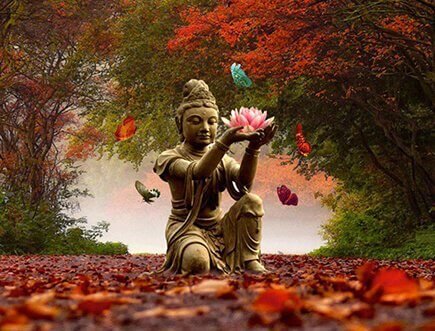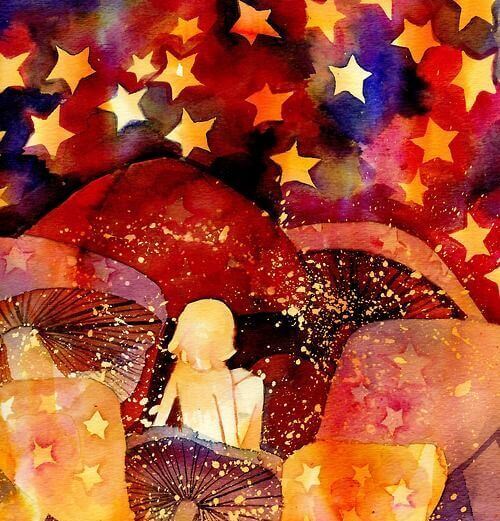No One Deserves Your Love More than You Do


Written and verified by psychologist Valeria Sabater
No one deserves more support, affection, and appreciation than they can give themselves. Your ability to provide yourself with your love is key to loving others.
One mistake many people make is to get caught up in the world of the people who surround them, who love them and give them a place in the world, offering safety and security.
While it’s true that everyone deserves to be loved, respected, and valued, you must first learn how to turn those emotions inward toward yourself. No one deserves more love than they can give themselves. This is how self-esteem, strength, and determination are created.
In order to be happy, there are a lot of elements that must come together, but nothing is more important than an understanding of what you deserve. An understanding that if you don’t love yourself, no one else will.
No one deserves more respect than what you give yourself

The instant you become aware that you deserve more than just the recognition of others in your daily life, you’ll understand the importance of cultivating those internal values like self-esteem, assertiveness, and self-awareness.
We recommend you also read: Stop wasting time on people who hurt you
- During childhood and adolescence, children commonly seek protection from others to make them feel safe: they crave the love of their parents, the recognition of their peers and classmates, etc.
- This can make you begin to see yourself as an important person.
- But as time passes, you’ll notice that sometimes people let you down. Family members make mistakes, your friends betray you, and a romantic partner might not be able to give you what you need.
- This is when you start to understand the importance of “self love.” It’s that inner strength that allows you to love yourself, making you less vulnerable to the pain of life.
If your family lets you down, you can move on. If your friends turn out to be different than who you thought they were, you can make new ones. You don’t feel alone or helpless, because you know what you deserve in life.
Steps to loving yourself
 You are the love of your life
You are the love of your life
In the great circle of life, there will be many other people you come to care about. There will be family members, partners, children…That’s important, but what you need to understand is that if you don’t love yourself first, what others will see is insecurity, doubt, and anxiety.
- People who don’t value themselves don’t expect others to do so either. This creates emotional deficiencies that can lead to serious existential crises.
- True life begins the instant you put yourself at the top ring of your own life. That happens when you can say, “I’m important, I deserve to be happy, I deserve to be respected, and I love myself.”
- Saying those words isn’t an act of selfishness. In fact, it’s an act of freedom. The moment you start believing that you deserve everything out of life, you’ll find that you’re able to walk on your own, and more than that…to love others as well.
You deserve to be happy
Everyone deserves to be happy, but they don’t always know how. The key to getting started might very well be the following:
- Try to live a simple and humble life that’s always in balance: one where your values and integrity defended, where everything you do is worthwhile, and where the people around you respect you…
- Free yourself from things that have no value in your life. In other words, say “no” to unnecessary suffering. Don’t worry about things that aren’t worth your time, and forget the people who have hurt you. Understand what it is you prioritize in your life (yourself, your family) and fight for that.
- Everything else is not worth your time.
- Happiness isn’t something that you seek – you find it within yourself day by day. That’s why you should stop looking to the people around you and let it begin to grow within your own heart.
No matter what you choose to do, make sure it brings you happiness

That’s why in every new beginning, you must always stay focused on the one thing that’s certain: you deserve to be happy; you deserve to be respected. Any time these needs are not being met, you have to make a decision – to walk away from the situation or to jeopardize your self-esteem.
Discover: 36 questions to fall in love in 1 hour
A lot of times, being happy is an act of courage. Don’t be afraid to raise your voice and be brave. The love that you have for yourself will provide the strength you need every day of your life.
All cited sources were thoroughly reviewed by our team to ensure their quality, reliability, currency, and validity. The bibliography of this article was considered reliable and of academic or scientific accuracy.
- Chung, J. M., Robins, R. W., Trzesniewski, K. H., Noftle, E. E., Roberts, B. W., & Widaman, K. F. (2014). Continuity and change in self-esteem during emerging adulthood. Journal of Personality and Social Psychology, 106(3), 469–483. https://doi.org/10.1037/a0035135
- Du, H., King, R. B., & Chi, P. (2017). Self-esteem and subjective well-being revisited: The roles of personal, relational, and collective self-esteem. PloS One, 12(8), e0183958. https://doi.org/10.1371/journal.pone.0183958
- Kiviruusu, O., Berg, N., Huurre, T., Aro, H., Marttunen, M., & Haukkala, A. (2016). Interpersonal Conflicts and Development of Self-Esteem from Adolescence to Mid-Adulthood. A 26-Year Follow-Up. PloS One, 11(10), e0164942. https://doi.org/10.1371/journal.pone.0164942
This text is provided for informational purposes only and does not replace consultation with a professional. If in doubt, consult your specialist.








